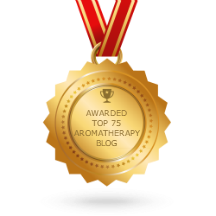At the recent AIA conference, Dr. Jane Buckle, one of the two keynote speakers, presented several case studies demonstrating common issues in healthcare and ways that our precious essential oils could be helpful.
One group of case studies revolved around MRSA. Several studies showed mixed results. (It's important to remember that even when we don't get the results we had hoped for and/or predicted, the studies are still important. We need to know what doesn't work, as well as what does.)
First case study used Tea Tree, Eucalyptus Globulous and Lavender, both individually and blended. The results? The tea tree and the mixture showed no growth after 24 hours; the Eucalyptus showed slowed growth, and the Lavender slightly slower growth. However, after 48 hours, the tea tree and the blend still showed no growth, while the Lavender and the Eucalyptus showed noticeable growth. My notes indicate that the combination of the three oils was more effective than the Tea Tree oil alone.
Another study showed the use of tea tree oil in treating abcessed wounds. Undiluted tea tree oil was applied to the wound dressings (*not directly to the open wound*). Within 24 hours there was a significant difference in healing in the wounds with the tea tree in the dressing.
Another case study (this one I loved!) showed the use of "a tea tree/lavender body wash" in addition to conventional antibiotics. Every patient recovered completely with no further outbreaks.
The last MRSA case study concerned patients with either End Stage Renal Disease or Diabetes with MRSA infected wounds. In this case, a 15% dilution of TeaTree oil in Aloe Vera Gel was applied directly to the wounds. The results were so effective so quickly that all the wounds (the "control" subjects) were also switched to the Tea Tree/Aloe treatment.
I love case studies! Dr. Buckle's dream is to have an online database where case studies may be collected and compiled. The healers working with essential oils in their practices will probably never have the funding to do the huge research projects that big Pharma puts together. However bit by bit, we can add to the body of knowledge. And perhaps we can use some of the experiences shared in case studies in our own self care.
Tuesday, November 8, 2011
Subscribe to:
Post Comments (Atom)


No comments:
Post a Comment